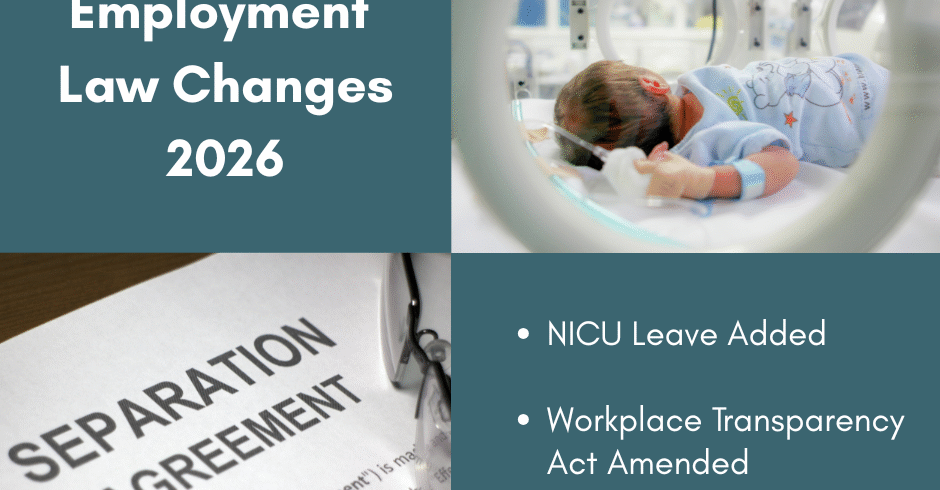
On June 9, 2022, Illinois Governor J.B. Pritzker signed the Family Bereavement Act (the Act), an amendment to the existing Child Bereavement Act. The Child Bereavement Act, which became law in 2016, allowed parents and guardians to take leave from work in the case of the loss of a child (biological, adopted, or fostered) or stepchild. The Act just signed by Governor Pritzker expands upon both the types of loss and the types of family members entitling employees to leave. The Act will go into effect on January 1, 2023.
Expansions
The Act expands unpaid bereavement leave in several ways, particularly regarding the early stages of starting a family. Employees will now be allowed up to two weeks (10 days) of unpaid leave for:
- a miscarriage,
- an unsuccessful round of intrauterine insemination or other assisted reproductive technology procedure,
- a failed or non-finalized adoption match,
- a failed surrogacy agreement,
- a diagnosis that negatively impacts pregnancy or fertility, or
- a stillbirth.
The Act also expands the family members for whom bereavement leave can be taken. Previously, the law allowed employees to take a maximum of two weeks of unpaid leave for (1) attending to a funeral of a child, (2) making arrangements necessitated by the death of a child, or (3) grieving the death of a child. The Act replaces the term “child” with “covered family member” which includes:
- children,
- stepchildren,
- spouses,
- domestic partners,
- siblings,
- parents,
- stepparents,
- parents-in-law,
- grandchildren, and
- grandparents.
It should also be noted that in the event of the death of more than one covered family member within a single year, an employee may be entitled to up to a total of six weeks of unpaid leave.
Requirements
The requirements for bereavement leave remained mostly unchanged from the Child Bereavement Act. This law adopts the same definitions of “employer” and “employee” as used in the federal FMLA. That means an eligible employee must have been employed for at least 12 months and for at least 1,250 hours. A covered employer is one with 50 or more employees for each working day during 20 or more calendar work weeks in the current or proceeding calendar year. An employee must give their employer 48 hours’ notice before taking time off, but this requirement is relaxed in cases where that time frame is not reasonable or practical. Employees are also required to take their leave from work within 60 days of being notified of the loss, another holdover from the original law. New language in the Act restricts employers from requiring an employee to disclose the type of loss or category of loss they are experiencing, but employers can ask for reasonable documentation or proof.
For information on this or any related topic, please contact Mark McAnulty or any of the KDDK labor and employment law professionals. (This article was written with the assistance of Josephine (Josie) Haseman, a summer law clerk at KDDK).






